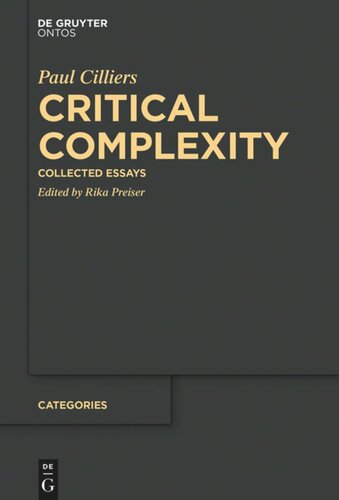

Most ebook files are in PDF format, so you can easily read them using various software such as Foxit Reader or directly on the Google Chrome browser.
Some ebook files are released by publishers in other formats such as .awz, .mobi, .epub, .fb2, etc. You may need to install specific software to read these formats on mobile/PC, such as Calibre.
Please read the tutorial at this link: https://ebookbell.com/faq
We offer FREE conversion to the popular formats you request; however, this may take some time. Therefore, right after payment, please email us, and we will try to provide the service as quickly as possible.
For some exceptional file formats or broken links (if any), please refrain from opening any disputes. Instead, email us first, and we will try to assist within a maximum of 6 hours.
EbookBell Team

0.0
0 reviewsThis book is a collection of all the single authored essays by Paul Cilliers, published between 1990-2011. Being one of few authors who approached the study of complexity from a philosophical perspective, the main themes in these papers explore:
- Qualitative characterization of complexity and the normative implications of studying complex adaptive systems,
- the philosophical and conceptual similarity to post-structural approaches
- how any engagement with complexity leads to a critical engagement with how we do science and design interventions
- critical and normative implications for how to engage with complex socio-political concerns in the world.
What makes this book unique is that it consolidates a body of work that is distributed over a wide range of academic journals. Although his book "Complexity and Postmodernism" (Routledge, 1998) remains a cornerstone in the field of complexity studies, Cilliers’ journal essays really explore the application of the theoretical concepts in more depth. His ground-breaking ideas conceptualized in these essays have served as a continual source of novelty and inspiration in the process of applying complexity thinking to other fields of study.